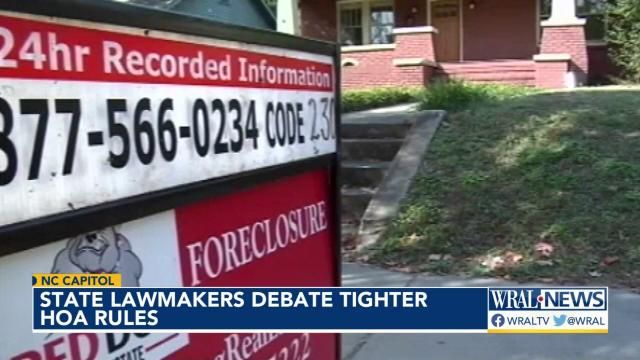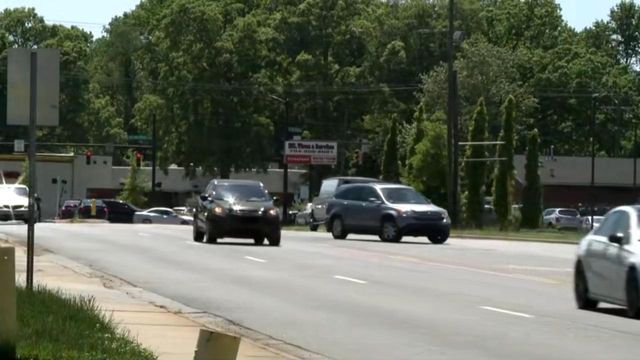NC House panel OKs recommendations limiting power of HOAs

A bipartisan state House panel Wednesday unanimously approved recommendations that they say would help curb abuses of power by community and homeowners' associations in North Carolina.
The recommendations, which will go before the full House for consideration, fall into several areas that were targeted by legislation in 2023: foreclosures, dues increases, civil civil litigation, transparency and oversight. None of those bills became law, although one is currently in conference committee.
One proposal would limit the power of HOAs to foreclose on a property for unpaid dues or fines. Under current law, that power is unrestricted.
The panel is recommending banning the use of nonjudicial foreclosure to satisfy an HOA lien unless the debt is at least six months' dues or $2,500, whichever is less. The HOA would have to offer the property owner an opportunity to pay the debt on an installment plan. If the owner rejects the offer or fails to make the payments, the HOA could then resort to foreclosure.
Another recommendation would only allow HOA boards to adopt budgets requiring an assessment increase of more than 10% with the approval of a majority of the owners. Outside the budget process, any HOA action requiring an assessment increase of more than 5% would need majority owner approval.
The committee is also recommending requiring HOAs to allow owners to review HOA records within 30 days of an owner's request, unless the request is for a financial document more than three years old.
The report further recommends that any civil dispute between an HOA and its members should first go through mediation before heading to civil court unless all parties agree to waive that step.
The final recommendation would require the state Department of Justice to include educational information about HOA rights and obligations on its website, along with information about how to file a complaint. The agency would be required to collect those complaints, facilitate sending them to all involved parties, and report on them annually to the legislature and the public.
CAI-NC, the state chapter of the Community Associations Institute, has been lobbying against many of the changes lawmakers sought. The group didn't immediately respond to a request for comment.
There was no debate, and co-chairman Rep. Frank Iler reminded the committee and stakeholders that the report is not actual legislation. "We're not voting out a bill," said Iler, R-Brunswick. "Any bill would have to be drafted and filed during session."
Lawmakers heard from a variety of homeowners, former HPA board members and lobbyists as the panel crafted its recommendations.
"We can't make as many changes probably as some would like to see happen, but we do have a few suggestions in the way of this committee report," said co-chairman Rep. Steve Tyson, R-Craven. "In the short amount of time that we've had to do this, I think it's a very good start."









